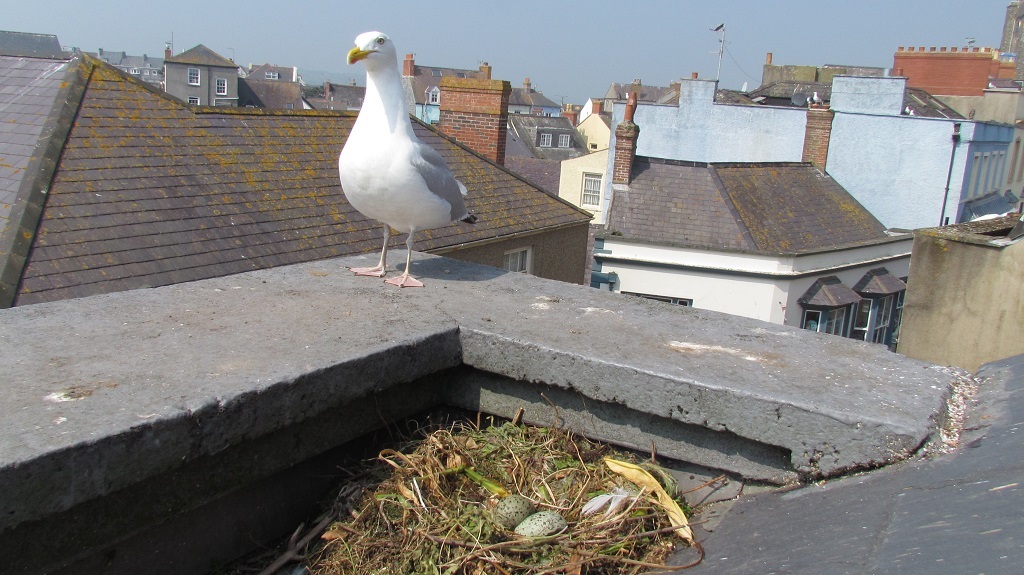Campaigns to fight back against the annual seagull menace are now underway across Scotland.
Fife Council has launched a new campaign to keep the feathered fiends off their streets, while Shetland Islands Council is asking property owners to get in touch if they think they may have a problem with nesting gulls.
Shetland Islands’ environmental health team can provide advice on how to prevent gulls from making nests and laying eggs.
If gulls have nested and there are eggs on the property, council staff can remove the nest and eggs before they hatch. There is a charge for this service of £91.99, which includes up to three visits to remedy the problem.
Patti Dinsdale, team leader – environmental health, said: “I’d urge anyone to get in touch with us as soon as possible if you have a problem with nesting gulls. It is easier to take steps to prevent the nest being made in the first place but if necessary we can remove any nests and eggs that have been laid. Once eggs have hatched and chicks are in the nest, we are unable to do anything.”
For help and advice on nesting gulls in Shetland, call 01595 745250.

Shetland Islands Council is offering a service to remove seagull nests
Meanwhile, Fife Council launched a new campaign tackling seagull nuisance in the area’s towns and villages.
Last summer, the council received numerous complaints about the problems caused by seagulls. To avoid the same problems this year, the council is asking people not to feed the gulls and property owners affected by gulls to consider gull-proofing their properties before breeding season starts.
Councillor Ross Vettraino, convener of the environment, protective services and community safety committee explained: ‘Herring gulls are the most common type of gull to nest on buildings in Fife. Notwithstanding that they can be a real nuisance, they are protected by law and it’s generally illegal to destroy them or interfere with their nests.
‘Fife Council has no statutory duty to deal with gulls, nor does it have the resources to do so. However, officers will give advice about the measures property owners can employ to proof their property and mitigate the nuisance.’
Gull-proofing measures include chimney guards, spikes for roof edges and netting. Such proofing will reduce the number of seagulls nesting on buildings with a consequential reduction in the problems associated with them, such as diving and aggressive behaviour.

Fife Council is fighting back against seagulls in the area
Members of the public who feed birds by scattering waste food over their gardens, who drop litter and who don’t properly cover their waste are contributing to the problem. Councillor Vettraino continued: ‘Gulls are opportunistic feeders and will scavenge in towns for food dropped by pedestrians or thrown out of cars, as well as tear open waste bags left on streets.
‘Everyone in Fife can play their part by not feeding the gulls, by binning litter instead of dropping it and by properly covering their waste.’
In areas where seagulls are causing a nuisance the council will be using signs, banners and pavement stencils to raise awareness and encourage people to not drop their litter but ‘Just bin it’.
Safer Community officers will also increase patrols in areas affected with seagulls, they’ll adopt a zero tolerance approach and will issue fines to anyone seen dropping litter. Officers will also be visiting local businesses providing advice on preventing litter and seagull deterrents.
Councillor Neil Crooks, convener of Kirkcaldy Area Committee added: I’m delighted to see the campaign being launched here. Kirkcaldy like many other coastal towns and villages has a real problem with seagulls.
‘I hope the whole community gets on board by not deliberately feeding the gulls and not dropping litter. It’s a simple solution but if it can lessen the seagull problem we should all embrace it.’
TAGS

